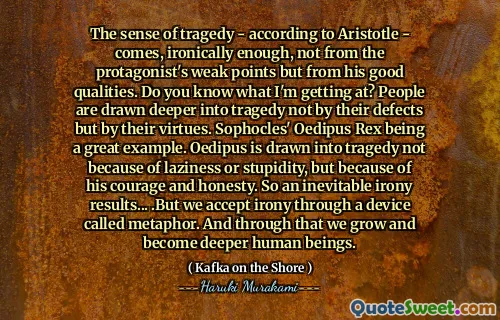
That's why I like listening to Schubert while I'm driving. Like I said, it's because all his performances are imperfect. A dense, artistic kind of imperfection stimulates your consciousness, keeps you alert. If I listen to some utterly perfect performance of an utterly perfect piece while I'm driving, I might want to close my eyes and die right then and there. But listening to the D major, I can feel the limits of what humans are capable of - that a certain type of perfection can only be realized through a limitless accumulation of the imperfect. And personally I find that encouraging.
The narrator expresses a fondness for listening to Schubert while driving, attributing this preference to the unique imperfections found in his music. These imperfections are seen as a stimulating force that keeps the mind engaged and alert, contrasting sharply with the risk of becoming complacent when listening to overly perfect performances. The narrator feels that perfect music can lead to a sense of overwhelming resignation, making one want to drift into a senseless state.
In particular, the experience of listening to Schubert’s D major highlights the boundaries of human capability, suggesting that true perfection emerges from a series of imperfect moments. This idea resonates with the narrator, who finds a sense of hope and encouragement in acknowledging that beauty and perfection are often borne out of flaws and limitations.






